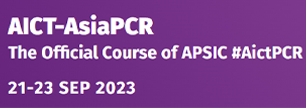


Original Research
Volume 72, Issue 11, September 2018
JOURNAL:J Am Coll Cardiol.
 Article Link
Article Link

Generalizing Intensive Blood Pressure Treatment to Adults With Diabetes Mellitus
SA Berkowitz, JB Sussman, DE Jonas et al.
KEYWORDS
diabetes mellitus; generalizability; hypertension transportability
BACKGROUND - Controversy over blood pressure (BP) treatment targets for individuals with diabetes is in part due to conflicting perspectives about generalizability of available trial data.
OBJECTIVES - The authors sought to estimate how results from the largest clinical trial of intensive BP treatment among adults with diabetes would generalize to the U.S. population.
METHODS - The authors used transportability methods to reweight individual patient data from the ACCORD (Action to Control Cardiovascular Risk in Diabetes) BP trial (N = 4,507) of intensive (goal systolic BP <120 mm Hg) versus standard (goal systolic BP <140 mm Hg) treatment to better represent the demographic and clinical risk factors of the U.S. population of adults with diabetes (data from NHANES [National Health and Nutrition Examination Survey] 2005 to 2014, n = 1,943). The primary outcome was the first occurrence of nonfatal myocardial infarction, nonfatal stroke, or cardiovascular death. Analysis used weighted Cox proportional hazards regression models with robust standard errors.
RESULTS - The ACCORD BP sample had less racial/ethnic diversity and more elevated cardiovascular risk factors than the NHANES participants. Weighted results significantly favored intensive BP treatment, unlike unweighted results (hazard ratio for primary outcome in intensive versus standard treatment in weighted analyses: 0.67, 95% confidence interval: 0.49 to 0.91; in unweighted analyses: hazard ratio: 0.88, 95% confidence interval: 0.73 to 1.07). Over 5 years, the weighted results estimate a number needed to treat of 34, and number needed to harm of 55.
CONCLUSIONS - After reweighting to better reflect the U.S. adult population with diabetes, intensive BP therapy was associated with significantly lower risk for cardiovascular events. However, data were limited among racial/ethnic minorities and those with lower cardiovascular risk.




















